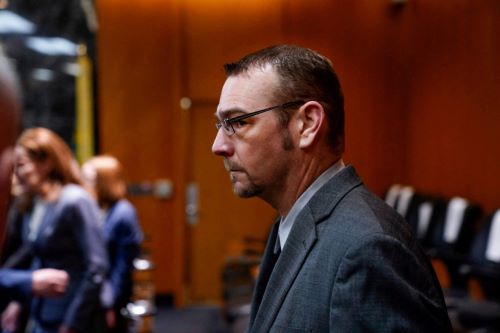

Holding parents legally responsible when children access guns is not about punishing grief. It is about recognizing that gun ownership comes with responsibilities that cannot be waived by sorrow.

By Matthew A. McIntosh
Public Historian
Brewminate
A Familiar Scene, a Different Ending
It happens often enough to have become a script. A child finds a gun, sometimes in a nightstand, sometimes in a glove box, sometimes beneath a couch cushion. A shot rings out. A life changes or ends. The media cycle spins briefly, filled with quotes from stunned neighbors and official statements about “unsecured firearms.” Then it fades, waiting for the next tragedy to restart the loop.
But beneath this repetition, a deeper question has been rising in volume. Who should be held responsible when children access guns, not only when they harm others, but when they are harmed themselves? Increasingly, lawmakers, prosecutors, and communities are saying: the parents.
The Growing Push for Accountability
In April 2023, Michigan passed a sweeping safe storage law requiring gun owners to secure firearms when minors are likely to be present. The law, signed by Governor Gretchen Whitmer, was a direct response to the Oxford High School shooting in 2021, in which 15-year-old Ethan Crumbley used a gun purchased by his parents to kill four classmates. In a landmark decision, Crumbley’s mother, Jennifer, was convicted of involuntary manslaughter, the first time in U.S. history that a parent was held criminally responsible for a school shooting committed by their child.
Her husband, James Crumbley, was convicted shortly after. Prosecutors argued that the couple not only failed to secure the weapon but ignored warning signs, including Ethan’s journal entries and disturbing drawings, which suggested a plan to kill. The verdict sparked debate across the political spectrum, with some calling it a necessary step toward real accountability and others warning it could set a dangerous precedent for parental liability.
Still, many legal experts agreed that the Crumbley case reflected a turning point. The question was no longer whether the child pulled the trigger, but whether the parents left it loaded and within reach.
Statistics behind the Stories
According to the CDC, gun violence is now the leading cause of death for children and teens in the United States, surpassing car accidents for the first time in 2020. The Giffords Law Center reports that an estimated 4.6 million children live in homes with at least one loaded, unsecured firearm.
Unintentional shootings by children, often involving siblings or friends, remain disturbingly common. In 2023 alone, the advocacy group Everytown for Gun Safety tracked over 300 such incidents, many resulting in fatalities. While state laws vary widely on safe storage requirements, a growing number are introducing or strengthening laws that impose criminal penalties on adults who fail to secure firearms.
Yet enforcement remains uneven. Some prosecutors hesitate to bring charges, especially in communities where gun ownership is culturally embedded. Others face backlash for “criminalizing grief,” as critics often frame the prosecution of parents who have already lost a child to accidental gunfire.
A Matter of Cultural Weight
The tension lies in the unique place guns hold in American life. In many communities, guns are not just tools for protection or recreation, but symbols of identity, independence, and intergenerational tradition. Teaching children to shoot is often seen as a rite of passage. To introduce legal accountability for a parent’s failure to store a gun properly is, in some minds, to criminalize the culture itself.
But that framing is being challenged by a rising chorus of parents, survivors, and lawmakers who argue that cultural norms cannot supersede safety. Shannon Watts, founder of Moms Demand Action, has said that safe storage laws should be “as noncontroversial as seatbelts.” The analogy is compelling: no one suggests that a parent whose child dies in a crash while unbuckled has suffered enough and should face no further consequence. Why should it be different when the vehicle is a firearm?
Legal Precedents and Shifting Ground
Even outside high-profile cases like the Crumbleys’, momentum is building. In Texas, a father was charged with criminal negligence after his 6-year-old shot and wounded his 5-year-old sibling with an unsecured pistol. In Florida, prosecutors charged a mother after her child brought a loaded handgun to school, leading to a lockdown.
While many of these cases result in plea deals or probation, their existence is notable. They signal a shift in prosecutorial discretion and a broader willingness to treat parental inaction as culpability, not just tragedy.
In Wisconsin, the case of Jeffrey Rupnow added a deeply troubling layer to the national conversation. Rupnow, a 47-year-old father from Watertown, was charged in 2023 after his 15-year-old daughter used his unsecured firearm to shoot and kill another teenager and a teacher in a study hall at Abundant Life Christian Christian School. Prosecutors allege that Rupnow, a convicted felon who was legally barred from possessing firearms, had kept multiple guns in the home, unlocked and easily accessible.
The case has stirred legal and ethical debate in Wisconsin, a state with relatively loose gun storage mandates, and reignited calls for tighter enforcement mechanisms.
While many of these cases result in plea deals or probation, their existence is notable. They signal a shift in prosecutorial discretion and a broader willingness to treat parental inaction as culpability, not just tragedy.
California, Oregon, and New York have all introduced or passed legislation mandating secure gun storage, often with civil or criminal penalties attached. Some laws go further, allowing victims’ families to sue gun owners whose negligence enables a crime or injury.
Still, the legal terrain remains uneven. In many states, laws exist on the books but lack enforcement mechanisms. In others, lobbying efforts have watered down proposals to the point of toothlessness. And while public opinion polls suggest that a majority of Americans support safe storage laws, partisan divides continue to stall legislation in gun-friendly legislatures.
Beyond Punishment: Prevention and Education
Accountability, however, cannot rely solely on the hammer of criminal law. Experts stress the need for education, resources, and cultural change. Programs like Be SMART, which promotes responsible gun storage through community outreach, focus not on shame or blame, but on awareness.
Schools, pediatricians, and local governments have begun incorporating gun safety messaging into broader public health campaigns. Some police departments distribute free gun locks at community events. Still, much of the burden remains on parents to take initiative.
And while public service campaigns can be effective, critics argue that voluntary compliance will never be enough in a country where gun deaths outpace every other developed nation. They contend that without legal consequences, the cycle of “accidents” will continue and that some parents will keep choosing convenience over caution.
A New Social Contract?
Holding parents legally responsible when children access guns is not about punishing grief. It is about recognizing that gun ownership, like driving or medical care, comes with responsibilities that cannot be waived by sorrow. The act of owning a firearm must include the duty to secure it, especially in homes with children.
To say otherwise is to accept that some deaths are simply inevitable. But the data and the stories suggest otherwise. These incidents are preventable. The tools exist. The laws are emerging. What remains is the will to use them and the cultural reckoning required to face what that might mean for how we view both parenthood and the right to bear arms.
In a country that prides itself on freedom, perhaps it is time to talk about the freedom children should have to grow up without fear of what waits in the unlocked drawer.
Originally published by Brewminate, 07.29.2025, under the terms of a Creative Commons Attribution-NonCommercial-NoDerivatives 4.0 International license.


